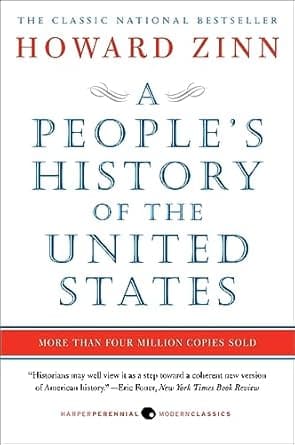
Book Stats
623
Upvotes
124
Downvotes
+499
Net Score
A People's History of the United States
by Howard Zinn
Description
A groundbreaking history that tells the American story from the perspective of ordinary people rather than political and economic elites, challenging traditional historical narratives.
Howard Zinn's influential work shifts the focus of American history from presidents, generals, and industrialists to the workers, women, indigenous peoples, enslaved Africans, and other marginalized groups whose experiences have been largely ignored by mainstream historical accounts. From Columbus's arrival through the early 21st century, Zinn reveals the gap between America's democratic ideals and its often brutal realities.
Zinn's approach is explicitly political—he argues that traditional history serves the interests of those in power by making their dominance seem natural and inevitable. By focusing on resistance movements, labor struggles, and grassroots organizing, he shows that ordinary people have always fought for justice and equality, even when their efforts have been suppressed or forgotten.
The book's treatment of American expansion reveals the violence and exploitation that accompanied westward movement. Zinn documents how Native American genocide, slavery, and the Mexican-American War were not unfortunate side effects of progress but deliberate policies designed to benefit white elites at the expense of others.
Each chapter challenges conventional wisdom about major historical events. The Civil War becomes not just a conflict over slavery but a struggle over what kind of society America would become. The Progressive Era reveals how reform movements were often co-opted by business interests seeking to prevent more radical change.
Zinn's analysis of American foreign policy shows consistent patterns of intervention designed to protect economic interests rather than spread democracy. From the Spanish-American War through interventions in Latin America and the Middle East, he argues that American leaders have consistently prioritized corporate profits over human rights.
The book's strength lies in its recovery of forgotten voices and suppressed stories. Zinn draws on diaries, letters, speeches, and testimonies from people who lived through historical events, showing how different the past looks from the bottom up rather than the top down.
A People's History has been both praised for democratizing historical knowledge and criticized for its political bias. Regardless of one's political views, it remains an important corrective to traditional narratives and demonstrates how historical perspective shapes our understanding of current events.